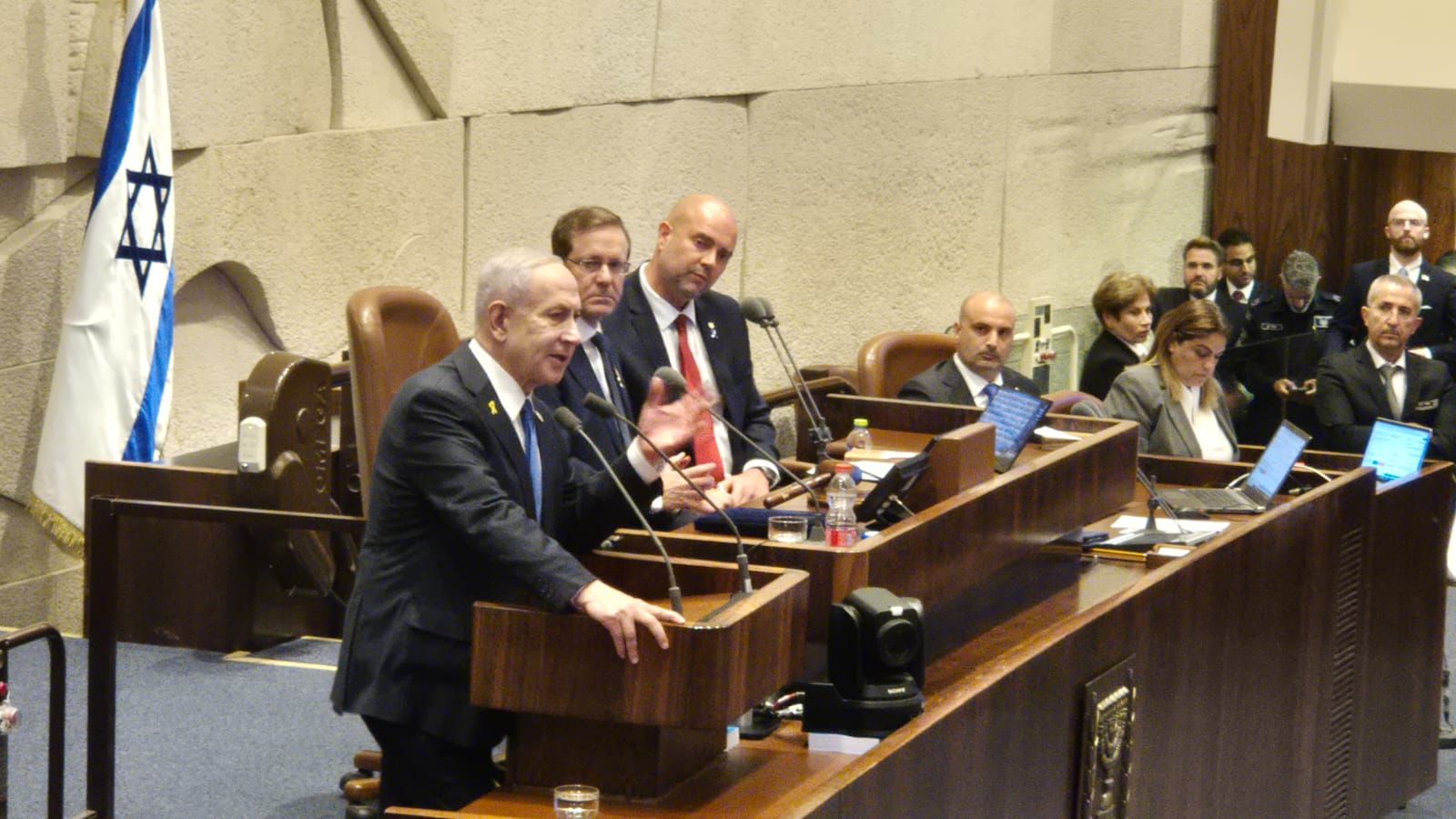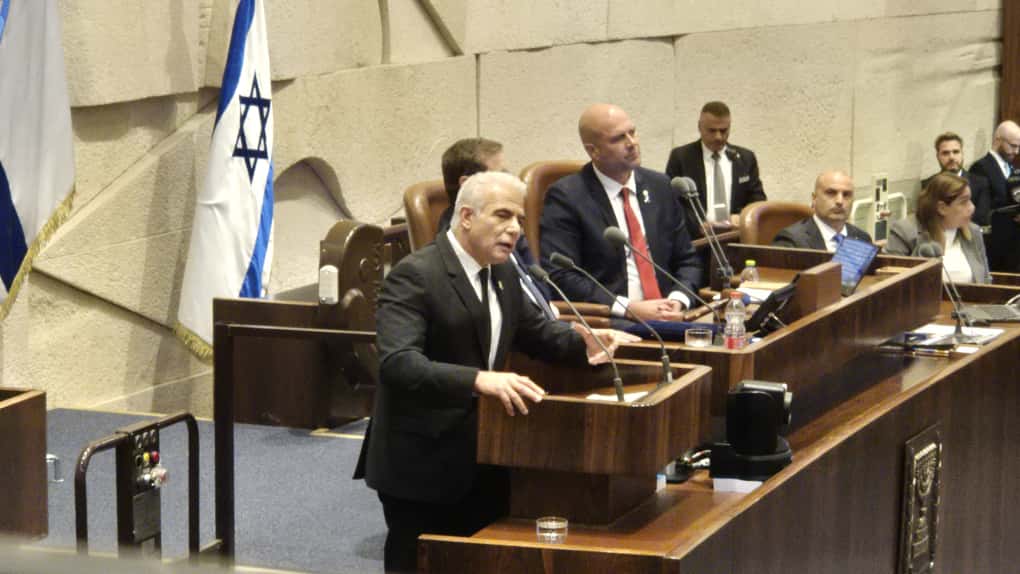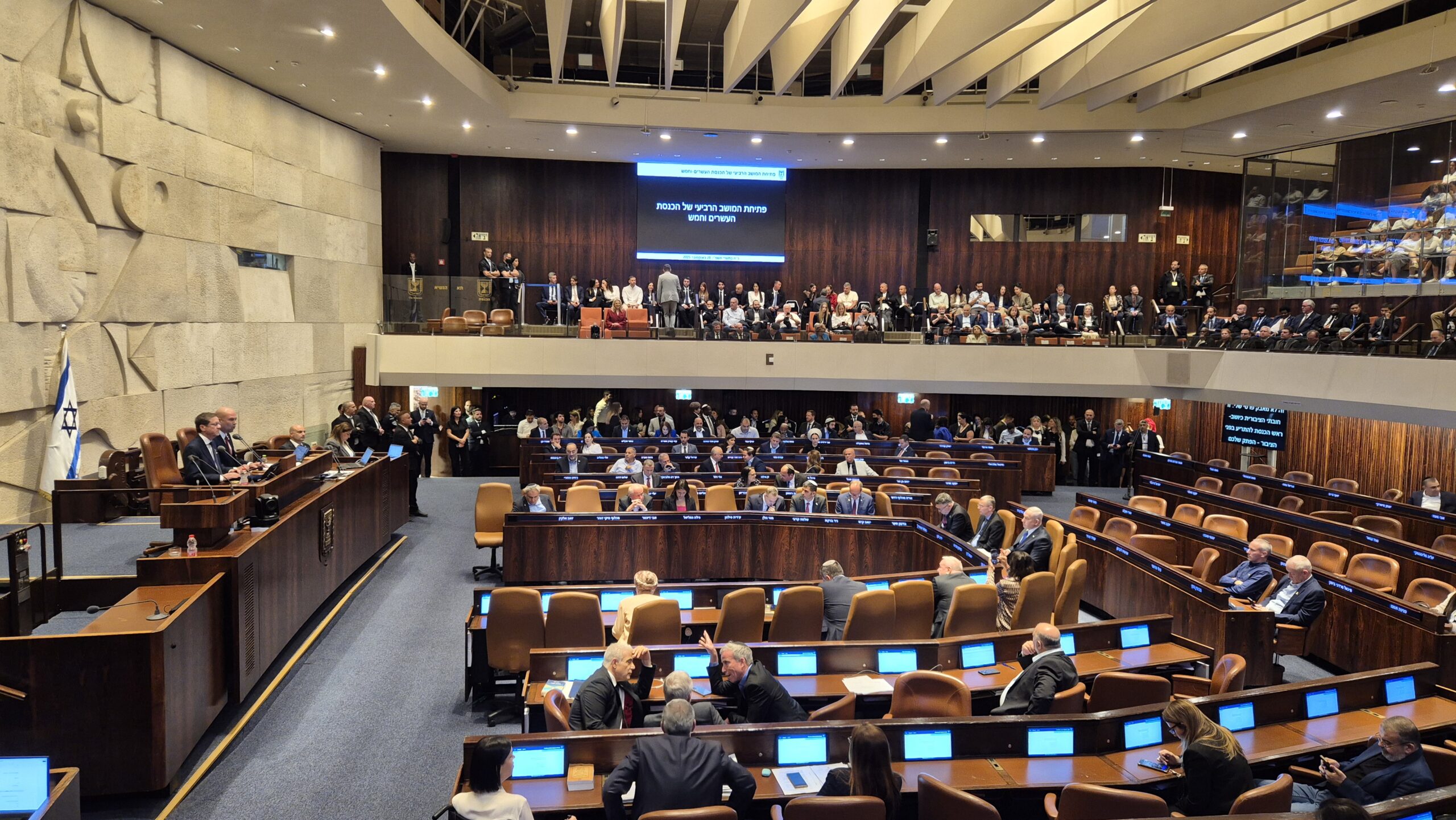Israeli Parliament’s Winter Session Opens in Chaos as Speaker Refuses To Acknowledge Supreme Court President
What began as a ceremonial reopening quickly devolved into shouting, expulsions and open conflict between Israel’s branches of government
The winter session of Israel’s parliament, the Knesset, opened in uproar, exposing the depth of the country’s internal divisions even after the end of the Gaza war. Within minutes of the national anthem fading, Speaker Amir Ohana’s refusal to mention Supreme Court President Yitzhak Amit in the opening protocol set off chaos that spread through the chamber like fire.
Ohana began his remarks by invoking unity, then abruptly accused Israel’s judiciary of holding “endless power.” His omission of Amit’s title—widely seen as a deliberate insult—broke parliamentary decorum. Opposition lawmakers shouted, coalition members replied, and security guards moved swiftly to escort the first of several members out.
“There is no other democracy in the world where a body holds unlimited power,” Ohana declared, raising his voice over the noise. “The parliament is the only institution that faithfully represents every part of Israeli society.” He accused the legal system of acting “not as a public servant but as a policymaker” and warned that “rule of law does not mean rule of jurists.”
There is a difference between legitimate criticism and a lack of basic respect
The shouting continued for several minutes until President Isaac Herzog approached the podium. His expression was tense; his prepared speech lay folded on the lectern. “My heart bleeds,” he said. “There is a difference between legitimate criticism and a lack of basic respect.” Herzog appealed for restraint, warning that “we cannot afford to humiliate each other or our institutions” while soldiers were still recovering from battle and families continued to mourn.
“This is not the time for arrogance; it is the time for responsibility,” he said quietly, addressing the chamber as Israel enters what he called “a year of elections.” For a brief moment, the hall fell silent. But the calm was shattered again when Prime Minister Benjamin Netanyahu rose to speak.

Prime Minister Benjamin Netanyahu speaks at the beginning of the Knesset’s winter session, Oct. 20, 2025. (Gabriel Colodro, The Media Line)
“Members of the Knesset, brothers and sisters of Israel, bereaved families,” Netanyahu began, pausing as opposition members interrupted. “I think of you every day,” he said, before launching into a defense of his government’s record since Oct. 7. He described the two years of fighting as “a continuation of Israel’s war of independence” and called the country’s soldiers “heroes who will be remembered forever.”
Give the gift of hope
We practice what we preach:
accurate, fearless journalism. But we can't do it alone.
- On the ground in Gaza, Syria, Israel, Egypt, Pakistan, and more
- Our program trained more than 100 journalists
- Calling out fake news and reporting real facts
- On the ground in Gaza, Syria, Israel, Egypt, Pakistan, and more
- Our program trained more than 100 journalists
- Calling out fake news and reporting real facts
Join us.
Support The Media Line. Save democracy.
Reading the names of murdered hostages still held in Gaza, Netanyahu said, “The mission will be completed.” The chamber quieted briefly before erupting again when he shifted to politics. “We have struck Hamas harder than ever before,” he said. “The ceasefire is not a concession. The power of Hamas will be dismantled, both militarily and politically.”
He spoke of “new opportunities for peace,” stressing that “peace is made with the strong, not with the weak.” Netanyahu cited the Abraham Accords as proof of strength and announced that US Vice President Vance would arrive in Israel to discuss “security challenges and diplomatic opportunities.”
You said we won the war—who was prime minister on Oct. 7, when Israel suffered its greatest disaster since the Holocaust?
From his seat across the aisle, Opposition Leader Yair Lapid listened, taking notes. When his turn came, he opened bluntly. “Mr. Prime Minister,” he said, “I listened to your speech and wondered what reality you live in.” He rattled off questions, each louder than the last. “You said we bombed Iran—who was prime minister when Iran built its power? You said Hezbollah has 150,000 missiles—who was prime minister when they got them? You said we won the war—who was prime minister on Oct. 7, when Israel suffered its greatest disaster since the Holocaust?”
The uproar was immediate. “You keep blaming everyone but yourself,” Lapid shouted over the noise. He accused Netanyahu of turning Israel into “a client state” after US President Donald Trump revealed he had personally ordered him to halt the fighting. “You told us you’re the only one who can stand up to an American president,” Lapid said. “Now he says he told you to stop, and you obeyed.”

Opposition Leader Yair Lapid speaks at the opening of the Knesset’s winter session, Oct. 20, 2025. (Gabriel Colodro, The Media Line)
Speaker Ohana struck the gavel repeatedly as the yelling spread. Lapid continued, accusing the government of “holding 15 unnecessary ministries” and “transferring billions in coalition funds while working Israelis pay the price.” He looked straight at Netanyahu and added, “Israel is a good and healthy country—it just has a sick government.”
Netanyahu demanded to respond. Returning to the podium, he accused Lapid of “talking about Iran but never acting.” Under his leadership, he said, “Israel acted against Iranian nuclear scientists.” The threats against Israel, he warned, “have not disappeared.” He urged lawmakers to “end internal battles” and reminded them that “the plan to destroy Israel remains alive.”
This is not how statesmen behave. Not toward colleagues, not toward the families of ministers, and not toward the people of Israel.
As interruptions mounted, Netanyahu’s tone hardened. “I keep to the boundaries of decent speech,” he said. “This is not how statesmen behave. Not toward colleagues, not toward the families of ministers, and not toward the people of Israel.” He ended with a solemn phrase he said had closed a crucial security meeting: “May God help us.”
Lapid’s final reply was brief but cutting. “You said, ‘May God help us,’” he began. “Indeed, may God help us. Because for 20 years in power, you spoke about Iran, you never acted. While you were talking, Iran became a nuclear state.” He accused Netanyahu of empowering Hamas by “bringing Qatar and Turkey, the ideological partners of Hamas, to manage Gaza instead of Egypt.” Pointing toward the coalition benches, he added, “If we had made the hostage deal earlier, many of them might still be alive.”
By then, the speaker’s calls for order were drowned out by the clamor. Some lawmakers stood and shouted; others were escorted out once more. What was meant to be a ceremonial reopening of Israel’s parliament ended as a brawl of words and gestures with the government and opposition trading blame, the president pleading for unity, and the legislature refusing to recognize the judiciary.
By the end of the opening ceremony, the chamber looked less like the seat of Israel’s democracy than a mirror of its fractured society. The shouting stopped, but the divisions revealed lingered—raw, unhealed, and echoing through the hall.



